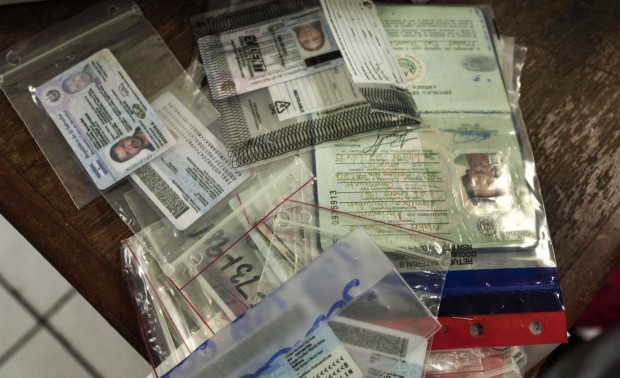A few weeks ago, Saudi police seized items consisting of stamps, certificates, CDs and letters; all of which were being used to forge documents.
The police dealt with the situation the same way they would deal with any drugs and weapons seizure. They claimed the items were found in an integrated lab equipped with tools that allow the forging of university degrees and other certificates related to private, local and foreign institutes.
The police also found a total of 32 stamps and seals belonging to local and foreign universities, colleges, and institutes, in addition to forged seals belonging to government departments. More than 16,000 forged certificates were seized, some of which were ready to be delivered.
Britain’s Telegraph newspaper, on hearing about this scandal, reported that 15,000 engineers from Saudi Arabia who migrated to work in the UK may be holding fake degrees. The main cause of the spread of these fake certificates is the development in the methods of electronic and print forgery and a general negligence in verifying applicants’ documents.
In the past, this was not considered a major problem since cases such as this were rare and counterfeiters used forged certificates and documents simply in order to decorate the walls of their offices.
Today, it has become a serious issue, particularly as there are hundreds of thousands of foreign nationals who hold important positions in the country, including engineers, doctors, and technicians. Who can tell which doctor is real or fake? Citizens have also discovered easy ways to buy fake certificates and work illegally. When a doctor is not a real doctor, and an engineer not a real engineer, who pays for the crimes that such forged documents permit?
This issue was not so critical back when higher educational degrees were mainly for social prestige. Today, higher degrees have become a means for financial gain and those who possess fake degrees find easy employment with increased income. Having a PhD, for instance, can increase one’s salary by more than 20 percent, for example.
In fact, counterfeit degree holders are not the sole problem; sometimes genuine degree holders lack the proper qualifications and experience. This prompted the British government to set up exams for doctors coming from abroad to test their capabilities in their respective fields. This was due to the high number of medical errors they made, as well as some doctors being uninterested in keeping up with medical advancements. A certificate alone is not enough to maintain a job.
What is required at this critical stage is to expose the counterfeiters, especially since their operations have become widespread due to the ease of forgery. Such operations can be found almost anywhere in the world and for precisely the same reason: financial gain. In Dubai, for instance, a fake plastic surgeon was arrested who not only carried a forged certificate; he was even impersonating an internationally famous surgeon.
Since the forgery community is large and well-developed , it will not be easy for companies and recruitment departments to discover fraud independently. The inspection duties should be entrusted to a third party that provides this service for public and private sectors. How else can we find out if a driver holds a real or counterfeit license? How else can we tell who is really an electrician, nutritionist, university professor and who is not?
Will it be possible to develop a third party company whose sole function is to verify one’s credentials?
